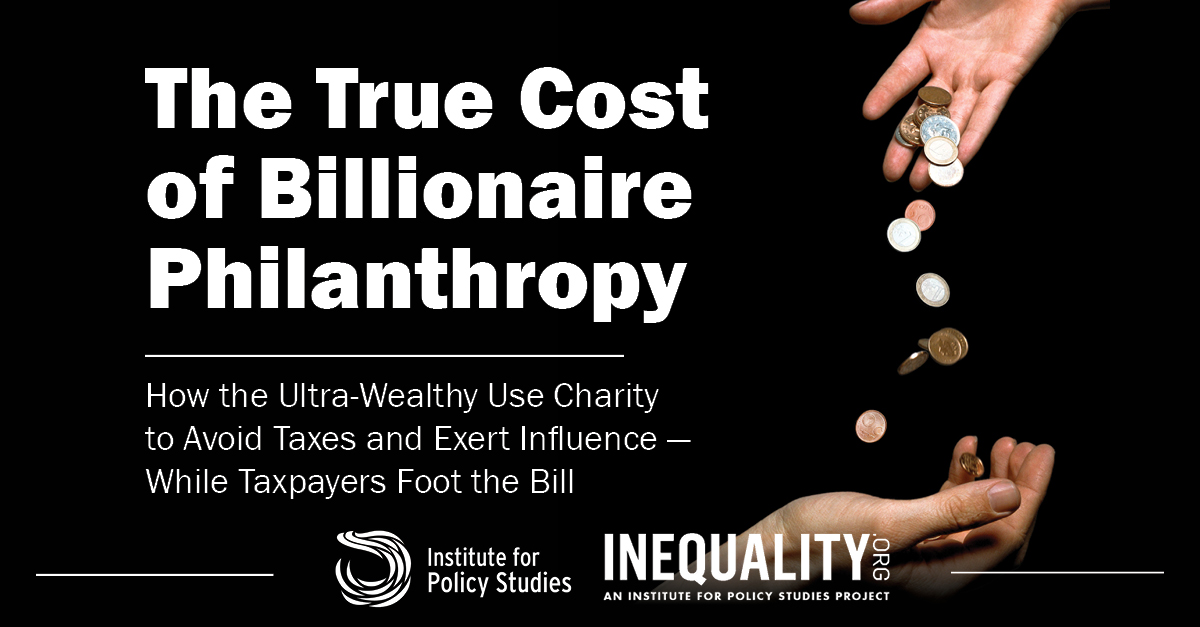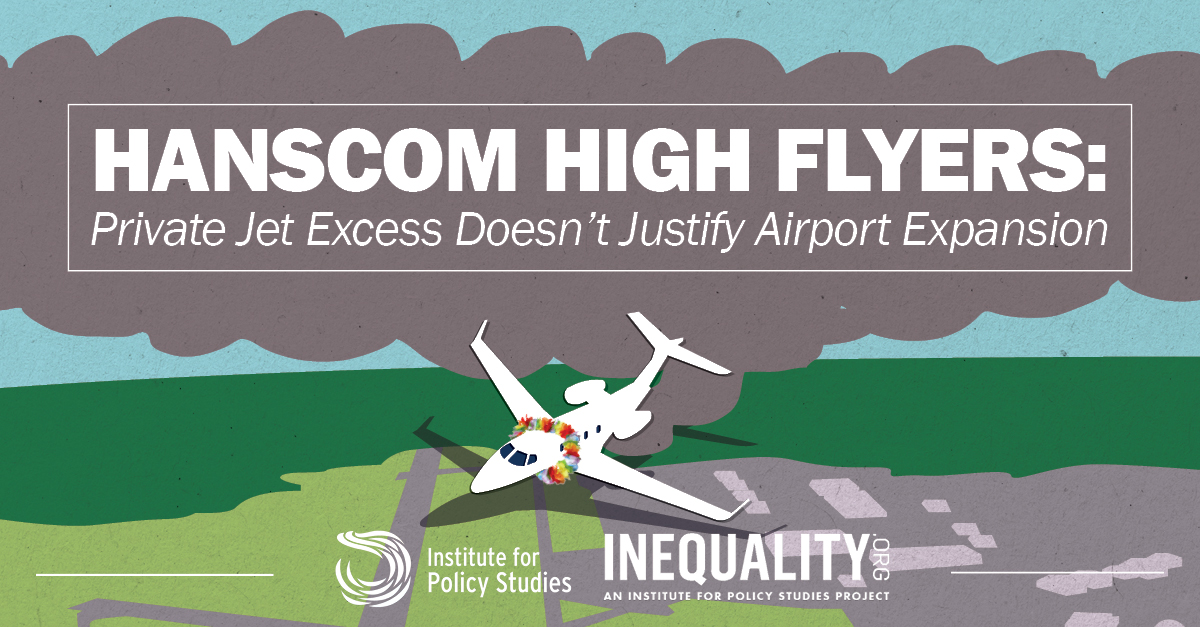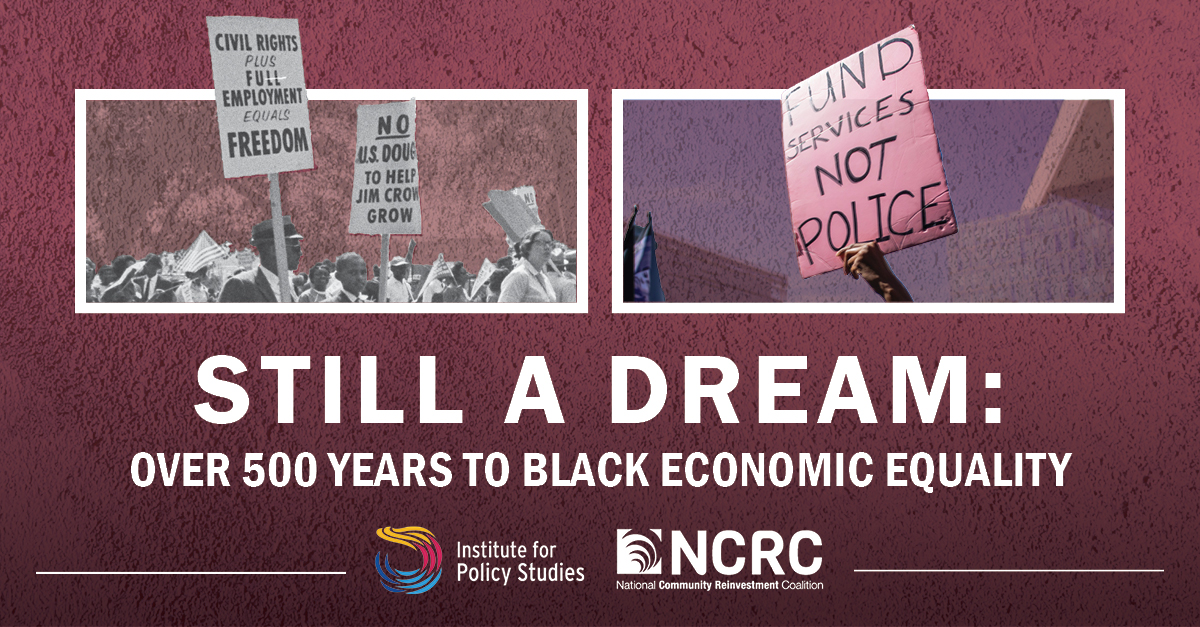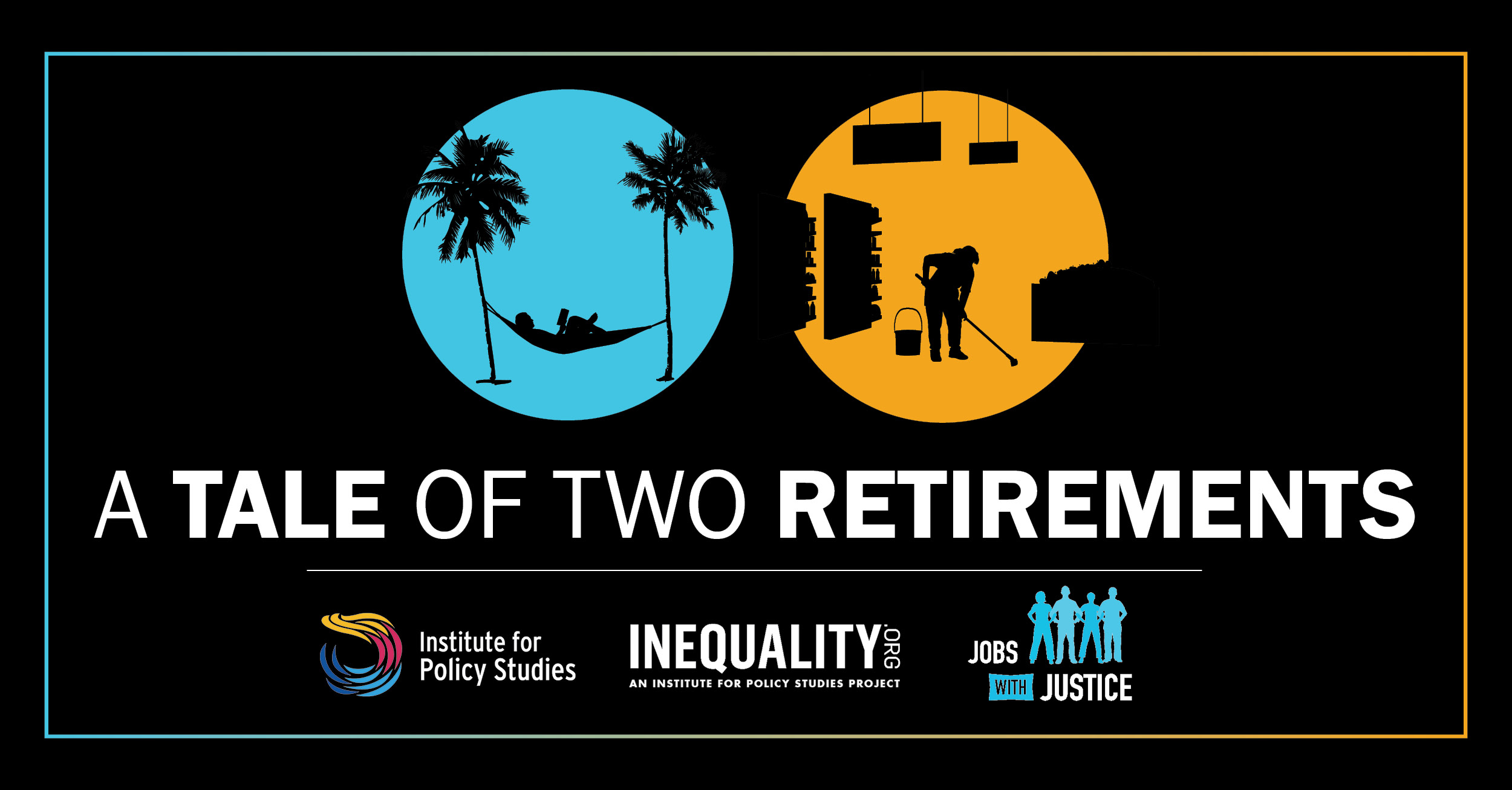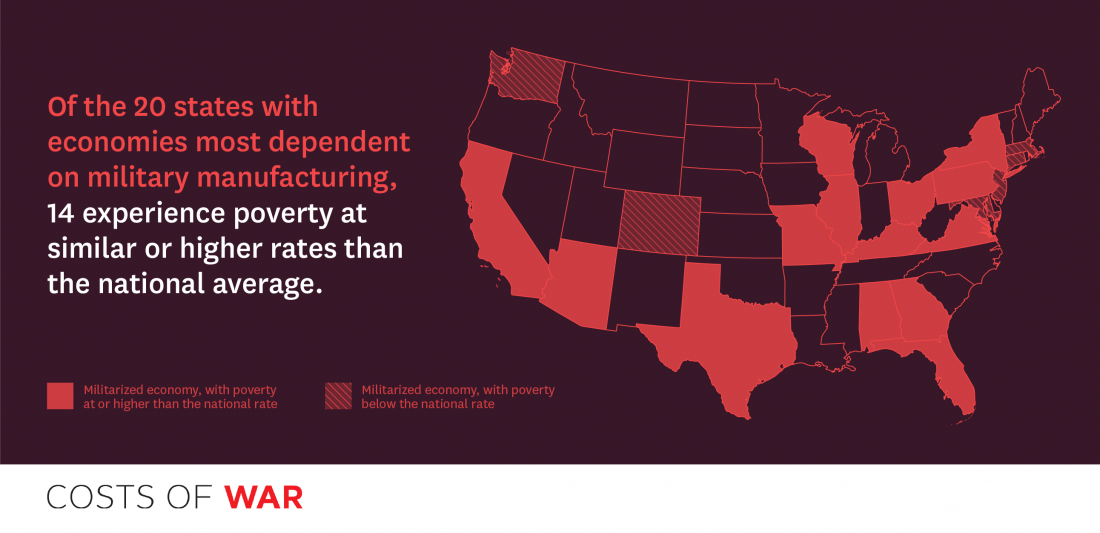Meet the foundations, donor-advised fund sponsors, and community foundations spending money and time to defend the indefensible status quo.
Read moreArchive: Reports
REPORT: The True Cost of Billionaire Philanthropy
New analysis details how the ultra-wealthy use charitable giving to avoid taxes and exert influence, while ordinary taxpayers foot the bill.
Read moreFACT SHEET: Invest in Communities, Not Violence
Here’s how legislators have splurged on militarism, and what could happen if those funds instead benefited people and communities.
Read moreREPORT: Hanscom High Flyers
Private jet travel is a monumental example of private excess at public expense. Here’s a local case study.
Read moreREPORT: Executive Excess 2023
These “Low Wage 100” large corporations are enriching CEOs at the expense of both workers and taxpayers.
Read moreREPORT: Still A Dream: Over 500 Years to Black Economic Equality
60 years after the March on Washington for Jobs and Freedom, the racial wealth divide persists.
Read moreREPORT: The Warfare State: How Funding for Militarism Compromises Our Welfare
Nearly two-thirds of the federal discretionary budget goes to militarized federal programs, leaving just over a third for our communities — a sliver some lawmakers want to cut even further.
Read moreREPORT: A Tale of Two Retirements 2023
Our tax code helps CEOs retire in luxury while ordinary workers struggle. Here’s how to fix it.
Read moreReport: High Flyers 2023: How Ultra-Rich Private Jet Travel Costs the Rest of Us and Burns Up the Planet
In this report, we assess the environmental, economic, and security risks of private jet travel — and lay out tax reforms to offset them.
Read moreREPORT: Sending Arms or Twisting Arms: The U.S. Role in the Ukraine War
This backgrounder explores the causes of the war in Ukraine and the actions of different actors in the conflict to date.
Read moreWall Street Bonuses Decline But Still Dwarf Worker Pay Increases Since 2008 Crash
Since 2008, the average Wall Street bonus has climbed by more than 75 percent, compared to just a 54 percent increase in average earnings of all private sector workers and a 42 percent rise in manufacturing wages. If the minimum wage had increased as much as Wall Street bonuses since 1985, it would be worth $42.37 today.
Read moreFrom a Militarized to a Decarbonized Economy: A Case for Conversion
In a new analysis for Costs of War, IPS Associate Fellow Miriam Pemberton lays out a case for a transition from a militarized to a decarbonized economy.
Read moreReport: “Extreme Wealth: The growing number of people with extreme wealth and what an annual wealth tax could raise”
An annual wealth tax on the world’s richest could raise $1.7 trillion globally.
Read more


